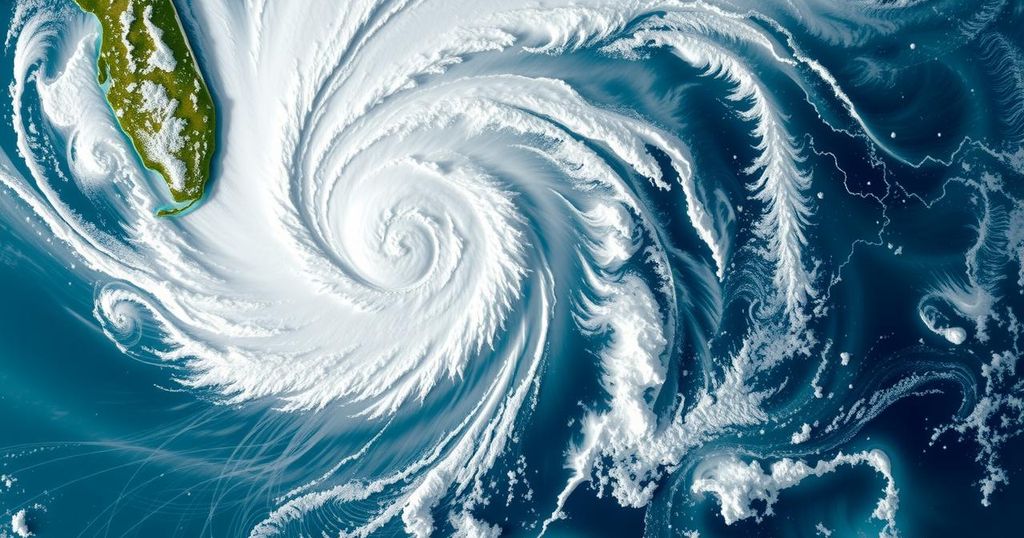Cyclone Chido has inflicted severe damage in Mayotte, France, leading to multiple deaths and extensive infrastructural loss as it approaches the east coast of Africa. The cyclone, characterized by extreme winds, has prompted emergency measures and significant rescue efforts. Nearby regions, including Comoros and parts of Mozambique, Malawi, and Zimbabwe, are preparing for adverse impacts, indicating a potential humanitarian crisis fueled by ongoing climate challenges.
Cyclone Chido has wreaked havoc in the French territory of Mayotte, situated in the Indian Ocean, leading to multiple fatalities and substantial destruction as it advances toward the east coast of Africa. French Interior Minister Bruno Retailleau indicated a preliminary assessment showing several deaths, while clarifying that exact figures would not be disseminated until rescue operations are capable of thoroughly evaluating the devastation left in the cyclone’s wake. The storm, characterized by winds exceeding 220 kilometers per hour (136 mph), has demolished metal roofs and severely impacted public infrastructure, affecting healthcare facilities, governmental buildings, and the local airport.
French President Emmanuel Macron is actively monitoring the situation, with local officials reporting catastrophic damage, resembling the most destructive cyclone to strike Mayotte since 1934. The French government has mobilized an extensive response, deploying approximately 1,600 security personnel and over 200 rescuers to assist affected populations and deter potential looting. Many residents in vulnerable neighborhoods have faced significant threats due to the cyclone, resulting in advisories for individuals to remain sheltered.
The cyclone has also adversely impacted the nearby Comoros islands, prompting authorities to issue warnings and close air and sea access as Chido approaches mainland Africa. As forecasters predict that the storm will reach Mozambique over the weekend, disaster agencies warn that millions could be affected from this catastrophe. Neighboring countries such as Malawi and Zimbabwe are bracing for possible flooding and require evacuations to mitigate potential risks. The season from December to March historically sees increased cyclone activity in the region, which has witnessed an alarming rise in storms fueled by climate change, exacerbating humanitarian crises in poorer nations that bear minimal responsibility for global warming.
Cyclones, particularly in the southeastern Indian Ocean, are a frequent occurrence during the months of December through March. In recent years, these storms have intensified, significantly impacting vulnerable regions such as southern Africa. This has led to catastrophic events like Cyclone Idai in 2019, which resulted in more than 1,300 fatalities. Challenges such as flooding, landslides, and the outbreak of waterborne diseases, including cholera and malaria post-storm, have compounded the crises faced by already impoverished nations.
In conclusion, Cyclone Chido has highlighted the vulnerability of regions such as Mayotte and surrounding areas to extreme weather and its devastating effects. With ongoing rescue efforts and the threat of further rainfall and flooding, the region stands at a critical juncture as it prepares for potential humanitarian crises exacerbated by climate change. Continued vigilance and a robust response from governmental and international entities will be essential in addressing the aftermath of this disaster.
Original Source: www.cnn.com







